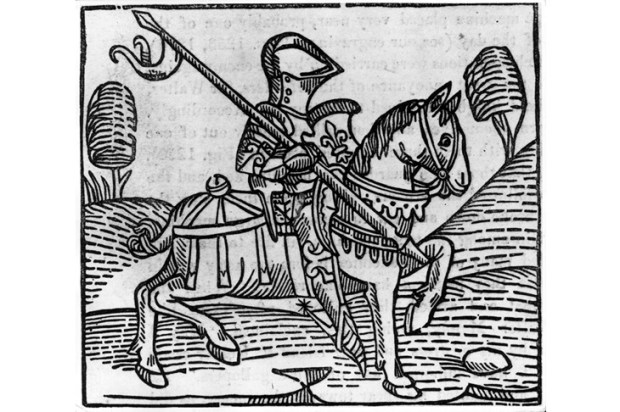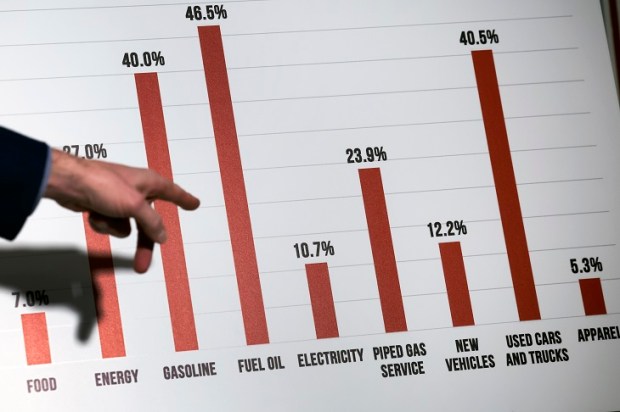The communistic approach, which underpins much of the West’s ‘good people/bad people’ political thought, is right – the haves are better off than the have-nots. To anyone with a heart, this doesn’t seem fair.
It also raises the question, why does capitalism work while the communistic approach, with all its good-hearted fair-mindedness, keep killing millions upon millions of dutiful citizens?
Essentially, capitalism gets incentives right and deals with envy more effectively.
Capitalism encourages people to work with each other. Communism sets people working against each other. When I was employed in China ten years ago, I asked a client engineer, ‘Why don’t you ever hear birds in China?’ He told me they were eaten during the Great Chinese Famine of Mao’s communist reign. The working relationship between humans on a macro scale has implications for the world, not just humans.
Have you ever been employed at a large company where the departments are at war with one another? Have you ever worked with a small company whose sole focus is customer satisfaction? Big government ownership withing a communist system tends toward the former. Small governments that favour private, individual ownership under capitalism tends toward the latter.
Communism is the ‘computer says no’ public service official whose driving incentive is to avoid mistakes that result in being told off. Capitalism can be imagined as a small company with a helpful salesperson and a hyper-effective product team doing their utmost to get everything right. Their incentive is to keep their customers happy, not protect a cushy job, because customer satisfaction leads to food on the table. This perception of risk leads to communism being adverse to doing new things.
Companies are full of people who mistakenly believe the company’s success is down to their particular department. Research and development people think ‘create the best product and the customers will come’. Marketers think ‘communicate the existence of this product and the people will come’. Salespeople think ‘help the people realise they need the product and they will buy it’. They are all right. They are all wrong. Only with all three working in harmony can you generate success.
What is the customer’s deepest need? I don’t know – but keeping them happy isn’t a bad start.
Which part of communism is aimed at the happiness of others? Not a lot of it…
Will the mistaken ideal of killing the bourgeoisie make them (or the proletariat) happy? Probably not. Which part of the communist approach protects against mass starvation? Very little of it. What’s ironic about the overarching power structure? Almost all of it.
Why do people get caught up in a political ideology that is so obviously wrong? Well, it’s seductive. Just ask the university sector, the public service, the ‘Woke’ political powerhouse, the education system, and sections of world’s religions. It is enormously seductive to think I’m right and you are wrong; that you must lose for me to win; and that there are good people and bad people.
Fairness is a word that might cause more harm than good. Making a judgement that something is or isn’t fair assumes we know what perfect justice would be. The law cannot do that, let alone politics. I once heard a Federal Court judge say that judges don’t administer justice, they administer the law. A judge could know a judgement is unjust but humbly limit him or herself to the rude machinations of the law. Fairness might be immediately obvious to children who don’t see beyond the first order impact of a forward pass on the touch footy field, but justice is more complex than it looks at first glance.
It’s instructive to ponder that the judges our society elects to the highest positions of fairness decreeing power are the people least willing to use it, preferring to stick to the rules. The people deemed most capable are those least likely to judge.
The Woke, meanwhile, are all-knowing. They believe that quotas are the only way for fairness to get a foothold in power positions. That’s like saying NBA teams should be forced to have a certain number of short people (or short identified) on their rosters. It’s much better to have people who are good at playing basketball on the roster, regardless of how tall they are. The rule book of basketball couldn’t care less about the fairness of you being seven foot or four foot tall.
Basketball relies on a system of rules like the laws that govern society. It doesn’t presume to weigh in on fairness of people’s heights. It doesn’t seek to correlate height with skin colour and offset any unfairness. It doesn’t pander to the bottom 99.9th percentile of the basketball skill Pareto distribution. It mechanistically counts baskets scored that didn’t break the rules and says that the team with the most of them wins at a given point in time.
The communistic approach wildly underestimates the power of human envy. It underestimates its destructive effect on communist systems, and it underestimates its bettering effect on capitalist systems. Admittedly, capitalism takes materialism too far, but having a nice roof over your head as a result of materialism isn’t such a bad thing, as bullet hole-strewn concrete apartment blocks in ex-Soviet Estonia can testify.
Herein lies the paradox. Capitalism will give you a much nicer Gulag-free life, but there is a very low, non-zero chance you will end up homeless. I suppose we have to ask ourselves, are soup kitchens, homeless shelters, and a very few people sleeping rough better than mass starvation, and if so, is a generous capitalist system better than a market-based communism? Building off something that works seems like the way to go to me. If you want a fast but safe race car, should you start with a Volvo 240, add wings and mid-mount a Chev V8 engine, or should you buy a mid-engined McLaren with stability control? Should you buy something fit for purpose or buy some purpose and fit? This is an interesting question that could speak to the longevity of the US vs Chinese empires. More and more though it seems that the Chinese are capitalists in communist clothing, and Americans are communists in capitalist clothing.
Envy, that insidious and all too common trap, wants what someone else has, but goes one step further in not wanting them to have it, be deprived of it, and suffer its loss.
Communism’s solution to envy is to do away with property rights. You can’t be envious if no one owns anything. The small problem with this plan is that people don’t take care of things without a sense of ownership. A lack of ownership also does not solve the problem of envy. Why? Power is an invisible but all too visible form of property.
Capitalism, with its awareness of envy, harnesses it for the betterment of society as a whole. Envy makes us strive. It focuses us outward on what we want but we get it by making other people happy. Worst case, it can cause materialism which, while ugly, is a lot less ugly than a Gulag. Best case, it fosters the spirit of inventiveness and creativity which gave us the light globe, the car, and penicillin.
If we align people’s incentives in a way that gets them working together rather than against each other, doing it in a way that harnesses envy productively rather than destructively, we get the makings of a flourishing society. On the other hand, if we continue to create lazy right/wrong, win/lose, and good people/bad people dynamics, even the birds will be watching their backs.
Paul Batten is the founder of LifeMapp, an app created to help us reduce overwhelm, stay balanced, and do what we love. A former McLaren vehicle dynamics engineer and test driver, he studied an executive MBA at the University of Barcelona, Spain.

























